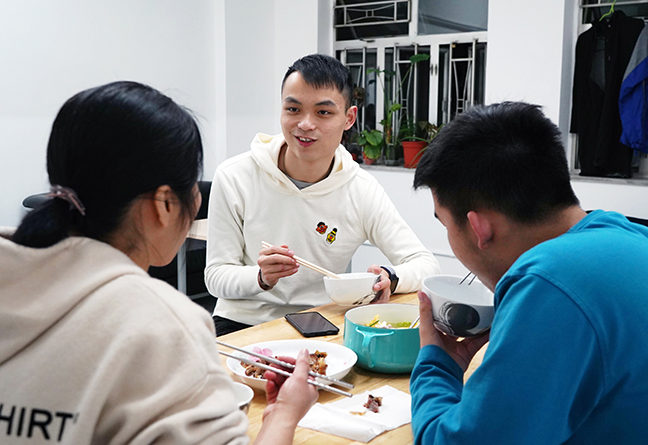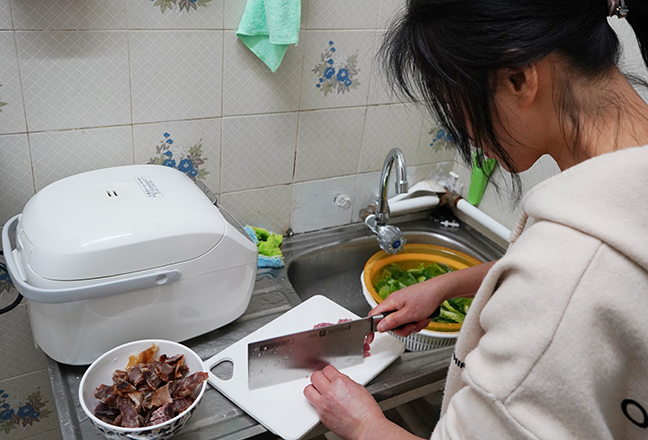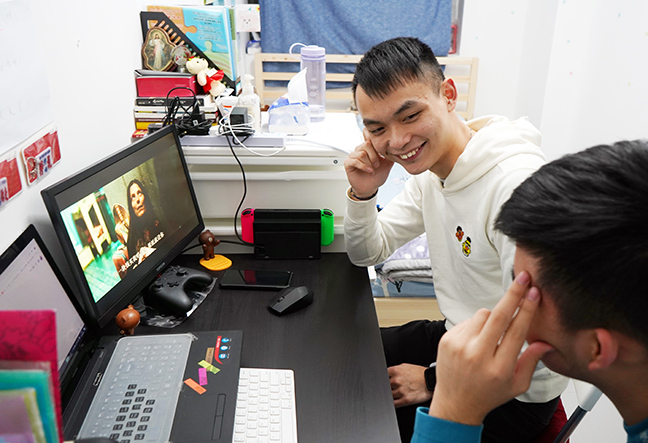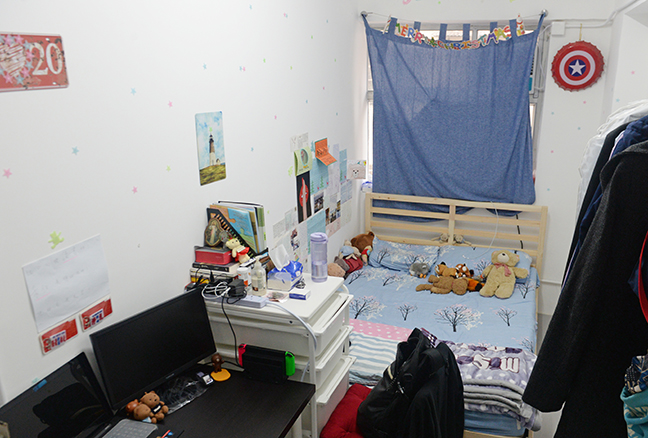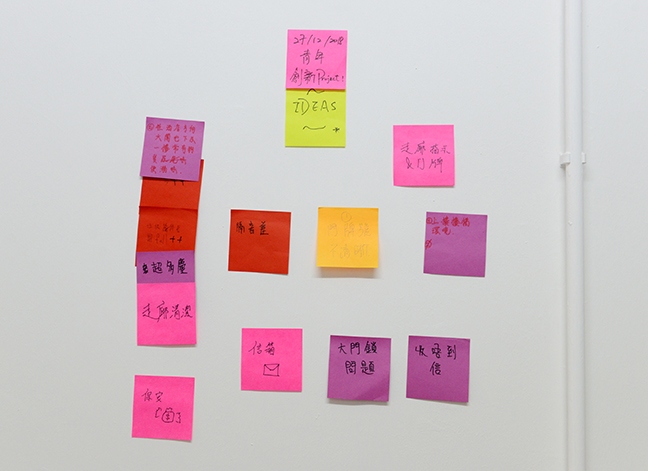Story
Co-living enhances community connection
Like many grassroots people queuing to receive public housing, Fong (alias) and her 15-year-old son rented a sub-divided flat of less than 100 square feet during the waiting period. The adverse living conditions greatly disturbed their emotions. It was not until they moved into the co-living community housing operated by The Salvation Army did they start truly live in security and dignity. The mother and the son finally found their long lost smiles. The son has also made friend with the other tenant of the flat, Yuen (alias). Yuen is a young student in his twenties who was distressed about housing after moving out of a youth hostel to start living on his own. By referral of social workers, Yuen’s pressing issue was resolved as he was arranged to move into the same flat.
Shared space cultivates mutual help
The idea of ‘co-living’ has become popular in other countries for long. This mode of accommodation has been emerging in Hong Kong in recent years, where a small mutually supportive community can be built among families by co-living with each other. Last year, The Salvation Army Social Services Department incorporated this concept into its newly launched ‘Community Housing Movement - To Kwa Wan Project’, offering grassroots families and young people with urgent housing needs with dignified, hygienic and safe living units at affordable rents. The Project aims to help the tenants to build a mutually supportive network which helps to make their lives easier. It also connects people with the community and invites tenants to offer their skills and abilities back to the community.
Fong, her son and Yuen were the first batch of tenants of the Project. Upon interviews and matching conducted by social workers, they were arranged to move into the same unit. After moving out of the sub-divided flat into the coliving unit, Fong gets her life back on track. With more living space, she is now more emotionally relieved, but what makes her happiest is to see the changes in her son. ‘My son used to be very introverted and seldom talked to our neighbours. These days he starts to communicate with Yuen and they even go to movies together. He’s now more cheerful with the company of this big brother.’
‘Co-living’ focuses on sharing and mutual help. Fong not only furnished the shared living room, but also brought in some life hacks as a housewife. Working as a waitress in a restaurant, Fong would collect discarded ends of lemons from her workplace for her housemates to put in their units to get rid of bad smell. When a new tenant family was unable to get suitable fertilisers for their plant as they are not familiar with the neighbourhood, Fong suggested they use coffee grounds as a fertiliser, which brought the plant back to life.
‘Work in Exchange for Accommodation’
Before joining the co-living project, Yuen was a tenant in a youth hostel due to family issues. He shared a room with several roommates of the same age, each with only a bed space without personal privacy and conflicts among roommates were frequent. Now, Yuen has his own room. Living together with Fong and her son allows them to take care of one another. Fong even makes him breakfast all the time, giving him a sense of warmth and care like a family.
With reference to the experiences in other countries, The Salvation Army adopts the concept of ‘Work in Exchange for Accommodation’ and encourages the young applicants of the co-living project to serve the community in exchange for affordable rental housing. All young tenants are invited to join the house management team. Yuen and the other young tenants meet regularly to come up with new ideas for their co-living space, for instance, ways to improve conditions of the staircase, hygiene of corridors, installing clear door number plates to the units, etc. Social workers also organise various activities, such as orientation classes for new tenants and co-living space planning, to help tenants fit into the new environment and plan for their new life ahead. By taking part in the preparation of these activities, these young tenants may build a sense of belonging to their community and develop a closer relationship among the neighbours.





